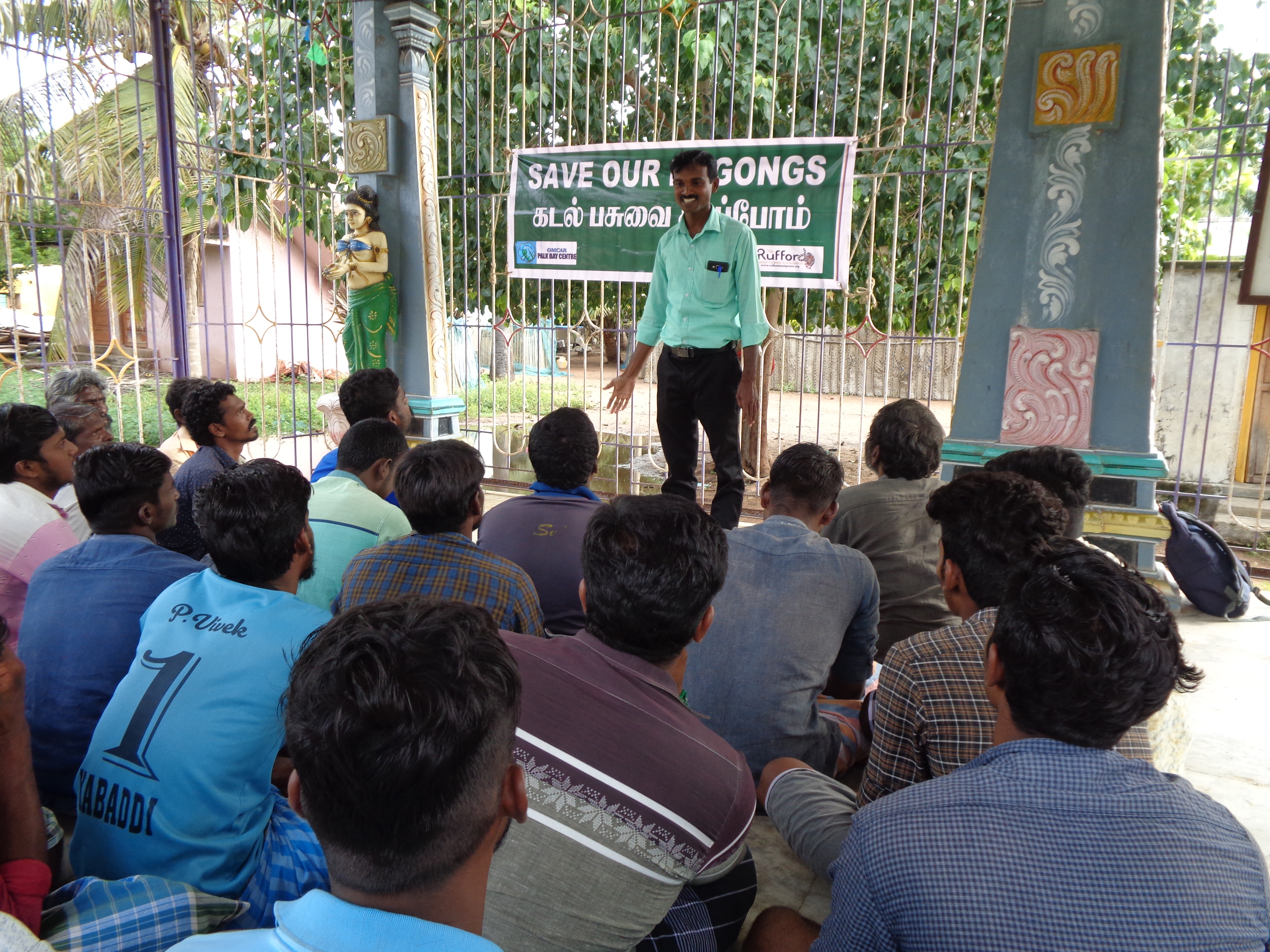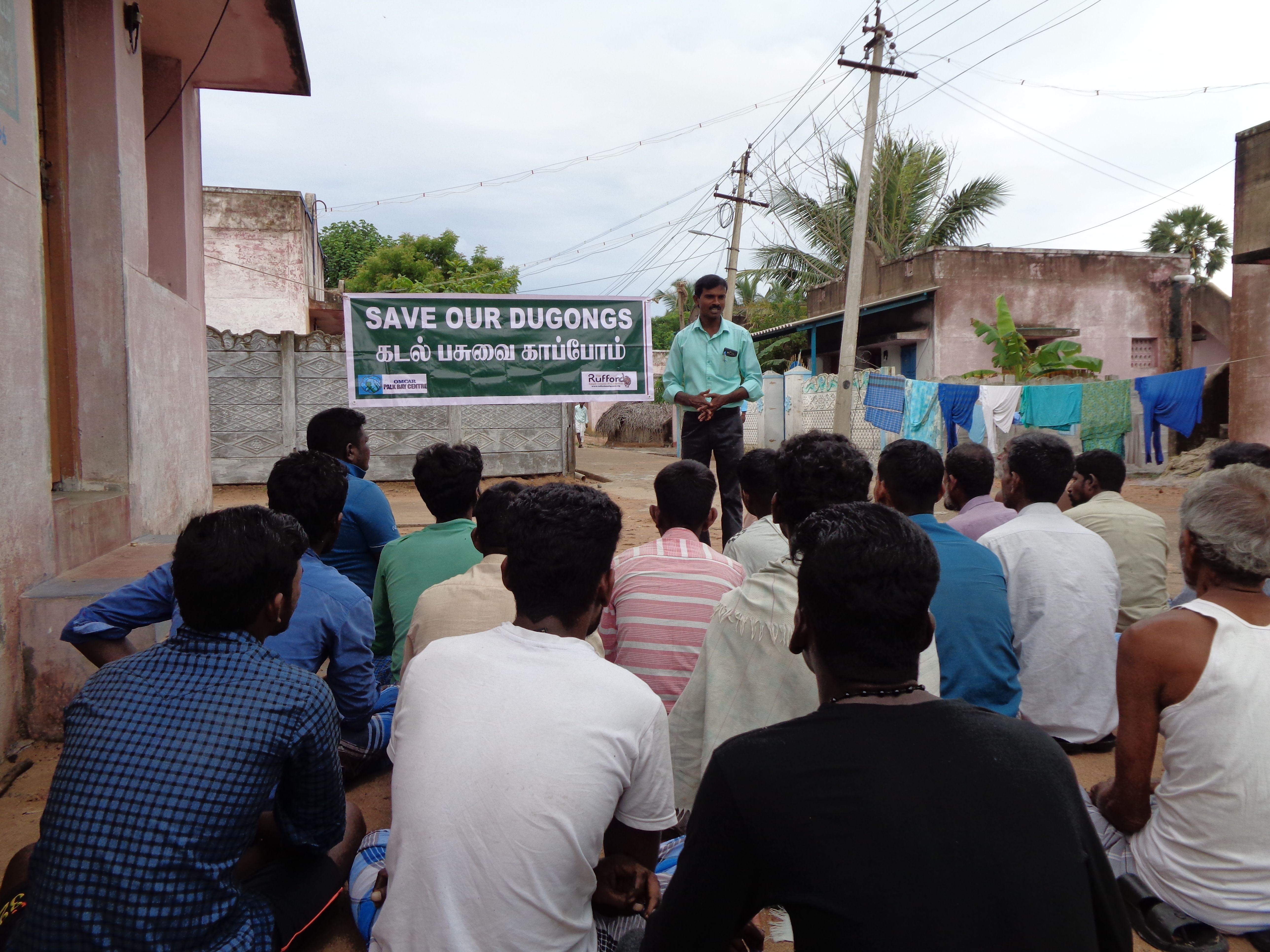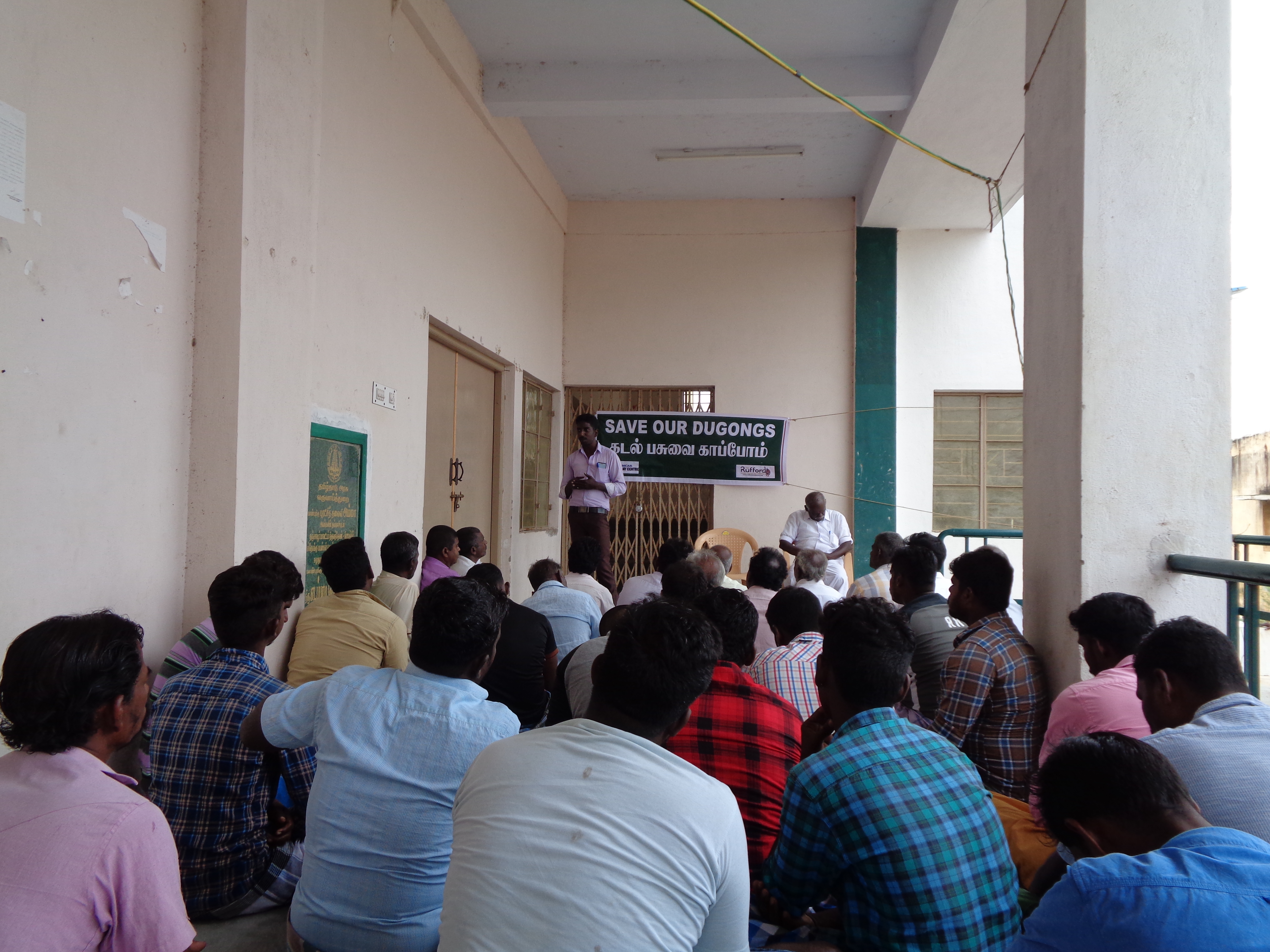



OMCAR signed MoU with government institutions (Wild Life Institute of India and Sacon) to work with other stakeholders efficiently and quickly respond to the dugong rescue and release in Palk Bay. With the partnership of Tamil Nadu Forest Department and Wild Life Institute of India, OMCAR established “Friends of Dugongs” in every fisher village in northern Palk Bay. The volunteers were trained to respond to a dugong strandings, and how to organise rescue and release with forest department. The volunteers have been actively supporting to share the information about dugong sightings, rescued and released dugongs in the past six years. As a result, several dugongs have been rescued and released in Palk Bay, and fishers received rewards and honoured by government. OMCAR published its stranded marine mammals record in a scientific journal, which helped as evidence for the need for the establishment of conservation reserve.
- The signing of the Memorandum of Understanding with Government institutions helped to build a strong partnership.
- The capacity building of volunteers from the fishing community enabled the successful rescue and release of dugongs from fishing nets.
- Recognition and rewards received by fishermen, who rescued and released the dugongs created a positive encouragement.
- Publication of dugong strandings supported the establishment of a dugong conservation reserve in Palk Bay.
- Grassroot conservation needs cooperation and mutual support from the government, NGOs, the public, and research institutions.
- Immediate response for the stranded dugongs, rescue, and release work with the participation of volunteers from coastal villages was possible through social media networking.
- Encouraging the community volunteers helped to enhance the dugong conservation further.
- Scientific publications and documentation are important for NGOs working in grassroots conservation.